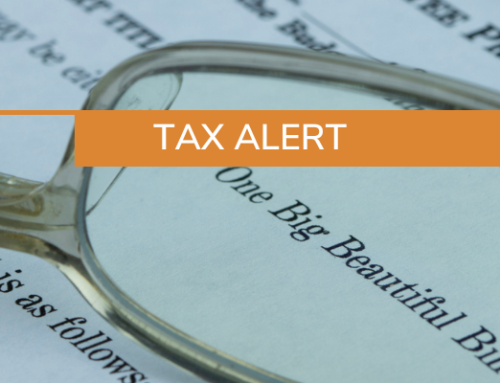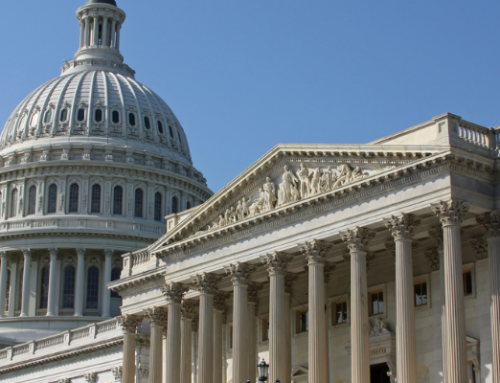The SALT cap has been a contentious issue ever since it was passed as part of 2017’s Tax Cuts and Jobs Act. A $10,000 deductibility limit doesn’t go far for taxpayers living in high-tax states and localities. Though recent legislation has attempted to overturn the SALT cap entirely, several states have revised their own rules allowing certain pass-through entities (PTEs) to work around the law. More recently, the IRS issued proposed regulations clarifying that PTE-level tax is not subject to the $10,000 SALT cap imposed by TCJA.
IRS Notice 2020-75
In November, the IRS clarified In Notice 2020-75 that the $10,000 SALT cap does not apply to pass-through entities. The notice further stated that regardless of what rules may exist in the state or local jurisdictions, the federal benefit is unaffected by any state-level credit applied against an owner’s state tax liability.
The following taxes can be claimed for the federal deduction, known as Section 164 (referring to the section of the Tax Code):
- State, local, and foreign real property taxes
- State and local personal property taxes
- State, local, and foreign income taxes
- War profits
- Excess profits taxes
The above-mentioned taxes must be imposed directly on the PTE by a state, U.S. territory, political subdivision, or the District of Columbia. Income tax payments for composite returns or withholding taxes do not apply.
The IRS’s notice applies to tax payments made on or after November 9, 2020. Payments in taxable years ending after December 31, 2017 and before November 9, 2020 are eligible, provided the Specified Income Tax Payment is made to satisfy the liability for income tax imposed on the PTE pursuant to a law enacted prior to November 9, 2020. It is unclear when proposed regulations will be issued and some PTEs may want to consider amending prior state returns from 2018 and 2019 to claim the benefit.
Several states have already passed legislation to allow PTEs to report and pay tax at the entity level. Such legislation allows the state tax to be deducted on the entity’s Federal income tax return, rather than losing the benefit of the deduction at the individual level due to the SALT cap.
It should be noted that the option to pay income taxes imposed by states or localities at the entity level may not be the best solution in all cases. Where there is an option to be taxed at the entity level, or continue with traditional withholding or composite tax, consideration should be given to the impact at the partner/shareholder level. One example is a situation where an owner may be able to offset income from the PTE against losses from other activities. Generally, decisions whether or not to opt to pay tax at the entity level will be similar to considerations to elect filing composite state income tax returns for non-resident partners.
The following states have enacted such legislation.
- Connecticut
- Louisiana
- Maryland
- New Jersey
- Oklahoma
- Rhode Island
- Wisconsin
Especially given the IRS’s proposed regulations, more states are sure to follow suit. Maryland’s provisions for entity-level taxation will go into effect for years beginning after 2019.
The SALT Cap and Entity-Level Taxation in Maryland
A new State of Maryland law allows PTEs, including partnerships and S-Corporations, to elect to pay the Maryland income tax due on both resident and non-resident owners’ share of the income from the PTE. PTE owners would include shareholders, partners, and members of an LLC. The new law is in effect for tax years ending after December 31, 2019.
Additionally, the state taxes paid under the new law are assessed at the entity level. Having the taxes assessed on the entity makes an important distinction in how the taxes paid impact the tax returns of the PTE and its owners. If the PTE makes the election, it could take a deduction on its tax returns for the Maryland taxes paid.
Understanding Maryland’s New Tax Law
Here’s how Maryland’s new law will affect PTEs and their owners’ tax returns.
- Federal Income Tax Returns
- The PTE reports the Maryland state taxes paid under the election as a deduction on its Federal tax return.
- The PTE owner reports his or her share of the PTE’s income or loss for the tax year, which includes the state tax deduction on the Federal tax return.
- Maryland Income Tax Returns
- The PTE elects to pay the Maryland tax on behalf of its resident and non-resident owners.
- The individual PTE owners will presumably be required to add back the Maryland state taxes deducted by the PTE when calculating Maryland taxable income. This is like the current requirement for entity level taxes paid in other states.
- The PTE owner will take a credit on the Maryland tax return for taxes paid by the PTE on his or her behalf.
Under the new election, the entity level tax is calculated for individual owners using the highest state tax rate plus the lowest county income tax rate, currently 5.25% and 2.75% respectively. This tax rate is the same method used to currently calculate Maryland’s non-resident owner tax. The tax rate for corporate owners is the corporate tax rate.
If a PTE owner is a resident of Maryland and has a higher local tax rate, this does not impact the state taxes paid by the PTE under the election. The difference in tax due to the higher rate would be ultimately be paid by the PTE owner on his or her Maryland income tax return.
Comparison to Maryland’s Prior Law for PTE Non-Resident Taxation
Typically, the entity would either withhold PTE tax or file and pay tax on a behalf of a non-resident owner. The tax remains the obligation of the owner. Deductibility is determined at the individual taxpayer level. However, providing for the entity to be taxed at the entity level, both resident and non-resident owners can take advantage of the opportunity to deduct Maryland income taxes at the entity level, thus avoiding the SALT cap at the individual level. Because Maryland already established the above legislation to allow entity-level taxation for residents and non-residents, this is another potential strategy that PTE owners and shareholders can use to maximize tax savings for 2020.
Prior to this new law, Maryland has generally required PTEs to withhold pass-through entity non-resident tax on its non-resident owners’ share of income. This tax, while paid by the entity, was actually the obligation of the individual PTE owner. The taxes would be deductible for federal income tax purposes as an itemized deduction on Schedule A of the PTE owner’s individual income tax return.
TCJA limited the federal itemized deduction for state and local income taxes to $10,000. With the TCJA limitation on state and local taxes, an individual taxpayer would not receive a benefit on the federal income tax return for any state and local income taxes, personal property, or real estate taxes paid over $10,000. Therefore, the PTE owner potentially may receive no benefit at the federal level on the Maryland non-resident taxes paid by the PTE. The PTE owners could still claim the non-resident taxes paid on their individual Maryland tax returns.
By way of comparison, under the prior law a PTE owner would potentially receive no benefit on the federal return due to the TCJA state and local tax limitation. With the new law, a PTE would make the election and a PTE owner would receive a benefit on their federal tax return from the lowered income reported on the federal Schedule K-1. This is because the income passed through from the PTE now includes the deduction for Maryland state taxes paid.
Additional Considerations
There are a couple of other items to note regarding the new PTE election.
- There is still further guidance needed from the State of Maryland regarding the election, including the mechanics of how to make the election.
- The election might not be appropriate for all PTEs as there may be additional considerations to evaluate when determining whether the election is the best option for a PTE.
PBMares invites questions from its pass-through entity clients and owners on how Maryland’s ruling and IRS Notice 2020-75 may affect their tax planning. Contact Lori Roberts, CPA, MSBA, CGMA, Director and Team Leader of PBMares’ State and Local Tax group.





